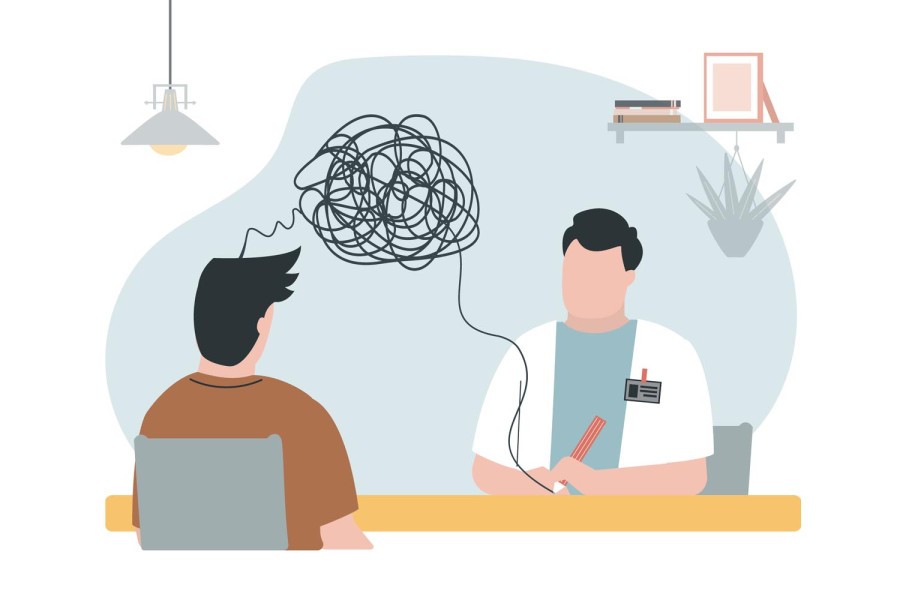Health
Government plans major mental health upgrades at two hospitals
The plan includes private consultation rooms, trained psychiatrists and nurses, and availability of medication at the hospital itself.
Post Report
In a bid to lessen stigma and discrimination against people with mental health issues in healthcare settings, health authorities are planning to implement quality improvement measures at least at two hospitals in the upcoming fiscal year.
Although such measures are necessary in all health facilities providing mental health care, only two hospitals have been selected due to budget constraints, officials say.
“Many general hospitals providing mental health care do not have separate rooms and privacy so that patients can tell their problems without fear of stigmatisation and discrimination,” said Dr Pomawati Thapa, chief of the Non-communicable Disease and Mental Health Section at the Epidemiology and Disease Control Division. “We have proposed a budget to improve the quality of two hospitals in the upcoming fiscal year.”
A study carried out by the Nepal Health Research Council in the past shows that about 13 percent of Nepalis suffer from some form of mental disorder. This means around one in eight Nepalis has mental health issues. Many seek help first at their nearby health facilities, but due to the lack of basic infrastructure and trained human resources, among others, patients often face discrimination, stigma, and even humiliation.
“We are aware that mental health problems can worsen due to stigma and discrimination, which should not happen anywhere and especially in healthcare settings,” said Thapa. “If we fail to address the quality issues of health facilities, people with mental health problems do not seek treatment.”
Doctors say treatment in the initial stage of mental illness helps patients achieve better results. For that, early diagnosis is crucial. But due to the entrenched social stigma, fear of discrimination and other factors, many patients in Nepal neither talk about their mental health issues nor seek hospital care. Some instead turn to drugs and other substances to cope.
Doctors warn that while drugs and alcohol may provide temporary relief from stress, they are no solution and ultimately harm mental health and well-being.
To address the problem, officials plan to set up private consultation rooms where patients can meet doctors confidentially, without fear of being overheard or facing discrimination and stigmatisation. Likewise, trained healthcare workers, including psychiatric doctors and psychiatric nurses, will be deployed for treatment. Along with ensuring privacy, the availability of medicine will be assured in health facilities where patients with mental health issues seek treatment.
Mental health experts say that Nepal needs to do a lot to reduce existing mental health problems in its population. For that, the quality improvement of healthcare facilities, including the availability of medicines, trained healthcare professionals, and patients' privacy, is a basic necessity.
“We have a lot to do to lessen the burden of mental health problems,” said Dr Basudev Karki, a mental health expert. “Quality improvement measures must be implemented in all health facilities providing mental health treatment.”
Studies show the magnitude of suffering, the burden and costs for individuals, families and societies arising from mental health disorders are alarming in Nepal.
The World Health Organisation estimates that one in four people in the world experiences mental or neurological disorder at some point in their lives, and around 450 million people currently suffer from such conditions, placing mental disorders among the leading causes of ill health and disability worldwide.




 13.12°C Kathmandu
13.12°C Kathmandu














